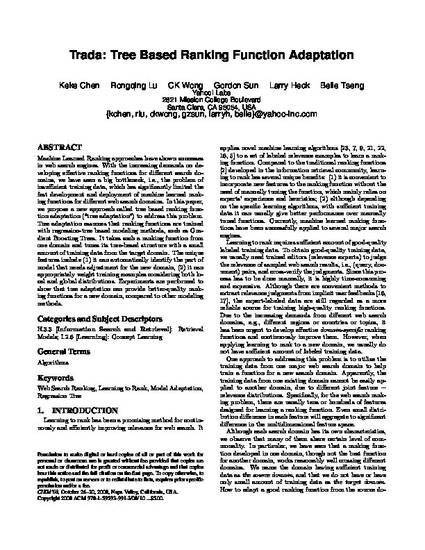
Machine Learned Ranking approaches have shown successes in web search engines. With the increasing demands on developing effective ranking functions for different search domains, we have seen a big bottleneck, i.e., the problem of insufficient training data, which has significantly limited the fast development and deployment of machine learned ranking functions for different web search domains. In this paper, we propose a new approach called tree based ranking function adaptation ("tree adaptation") to address this problem. Tree adaptation assumes that ranking functions are trained with regression-tree based modeling methods, such as Gradient Boosting Trees. It takes such a ranking function from one domain and tunes its tree-based structure with a small amount of training data from the target domain. The unique features include (1) it can automatically identify the part of model that needs adjustment for the new domain, (2) it can appropriately weight training examples considering both local and global distributions. Experiments are performed to show that tree adaptation can provide better-quality ranking functions for a new domain, compared to other modeling methods.
Available at: http://works.bepress.com/keke_chen/3/

Presented at the 17th ACM Conference on Information and Knowledge Management, Napa, CA, October 26-30, 2008.